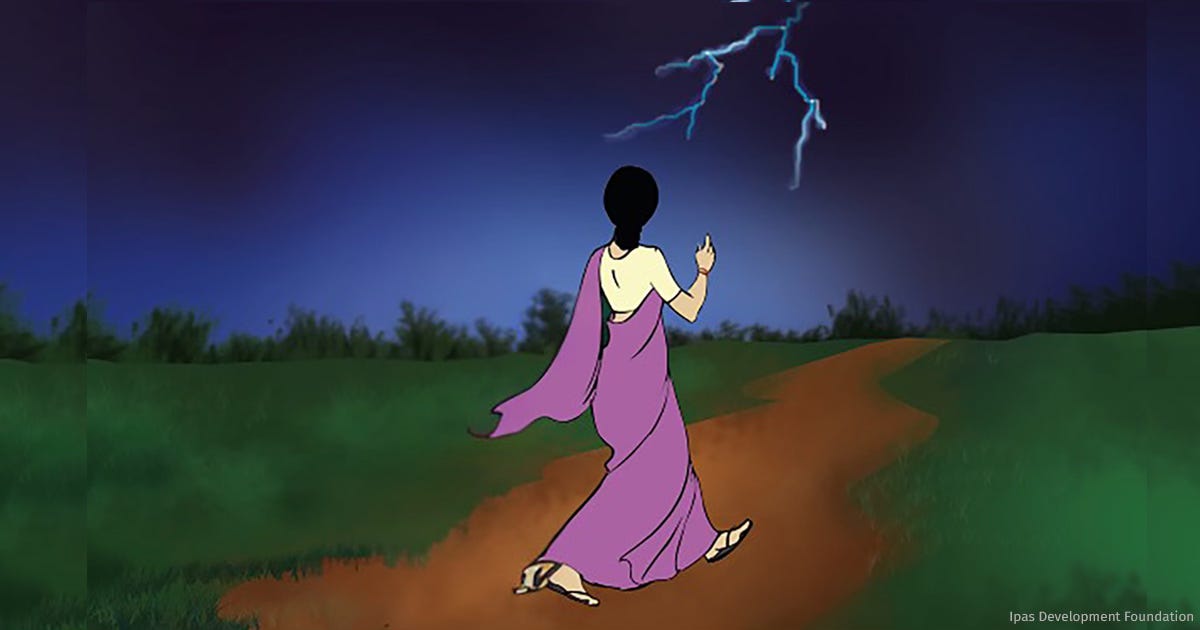Our 'Displaced' Priorities
Also this week, why access to legal abortion is difficult
The three stories this week, all culled from the complex landscape of India's development, are a microcosm of systemic displacement and vulnerability. From the coal-rich territories of Jharkhand to the waste management zones of Gujarat and the reproductive healthcare deserts of rural Uttar Pradesh, a common narrative emerges—that of marginalized communities, particularly tribal, scheduled caste, and women, who bear the heaviest burden of industrial progress and institutional neglect. Their bodies, their lands, and their futures become collateral in the country's pursuit of economic growth, where development is measured not in human dignity, but in acres acquired, waste collected, and productivity extracted. Taken together, these stories reveal how power structures systematically erode the rights and resources of those who are least equipped to resist.
IN the bustling urban landscapes of Gujarat, an invisible workforce of tribal migrant workers silently powers the machinery of waste management. Predominantly young and from the Bhil tribal belt, these workers, often couples working together, navigate precarious conditions as they collect door-to-door waste in cities like Ahmedabad, Surat, and Gandhinagar.
Their stories, reported here, reveal the reality of systemic exploitation. Earning wages far below minimum standards, lacking protective gear, and working grueling 11-hour shifts, these workers face significant health risks and social discrimination. Women particularly bear the brunt, sorting through unsegregated waste without recognition or additional compensation.
Despite being critical to urban cleanliness—recently celebrated when Surat won the "Cleanest City" award—these workers remain invisible, trapped in a contractual system that strips them of basic labor rights. Anamika Singh and Piyush Mane report.
FROM the heart of Jharkhand's coal belt comes a story of displacement, lost identity, and the human cost of industrial expansion. Each acre of land acquired represents more than a geological resource—it represents the dreams, histories, and futures of entire communities.
Suresh's journey epitomizes this profound transformation. Once a landowner, he now works as a security guard on the very soil his family once cultivated. His story is not unique, but emblematic of a systemic displacement that has uprooted thousands of tribal and scheduled caste families from their ancestral lands.
The mining projects—spanning coal, bauxite, and iron ore—have fundamentally reshaped Jharkhand's ecological and social terrain. Over 87,706 hectares have been acquired, an area larger than Bengaluru, leaving behind a trail of broken promises and fractured communities.
Families like those of Anandi Devi and Andu Ram have been forced to relocate, their connection to land severed by industrial ambition. "Many villagers have moved wherever they could find land," Anandi says, her voice carrying the weight of generational displacement.
As Jharkhand contemplates a new Displacement Commission, Rahul Singh reports a story underpinned by a fundamental truth: development cannot come at the cost of human dignity and ecological balance.
The story of Pooja is a thread woven through the broader tapestry of abortion access in India. A young woman with aspirations to become a teacher, she finds herself navigating a labyrinth of limited choices when an unintended pregnancy threatens to derail her dreams.
In Azamgarh's remote healthcare landscape, the absence of gynecologists transforms medical decisions into perilous negotiations. Women like Pooja and Aradhana are forced into self-managed abortions, their bodies becoming battlegrounds where personal agency confronts systemic indifference.
The statistics are stark: three in four medication abortions occur outside formal health facilities. Each pill taken represents not just a medical intervention, but a deeply personal act of survival and self-determination. Close to eight women die daily from unsafe abortion complications—a silent epidemic hidden behind closed doors and whispered conversations.
This is a story about medical access, but it is at a wider level also a story of how societal structures strip women of bodily autonomy. In makeshift clinics and small-town pharmacies, women like Divya, a mother of five, risk everything for the fundamental right to control their reproductive futures. Their story speaks to a larger truth—reproductive healthcare is not just a medical issue, but a profound human rights challenge. Menaka Rao reports.
In our Hindi edition, the IndiaSpend team looks at the Mahakumbh Mela which began 13 January and which, according to news reports, has thus far attracted over 8 crore pilgrims to Prayagraj.
Reporting from the ground, examining the logistics, the team asks—how is this headcount being done, and how accurate is it?





